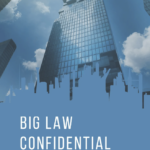Are NFTs Actually... Interesting? This Suit Could Be Precedent Setting
You know what they say, a Bored Ape a day keeps the attorneys at play! Just kidding. No one actually says that.

This, but imagine it’s a little ugly monkey worth your car.
If your social circle was anything like mine, NFTs have kinda gone the way of cryptocurrency. There was a bunch of initial hype about how this new development would make cash go the way of the dodo, people who had read a book (yes, just one book) and suggested that it was a bunch of Ponzi scheming got called Luddites for not getting with the times — a sizeable number of Crypto Gurus™ were Ponzi scheming by the way — and then radio silence once the trend fell off. The whole thing was so stressful, content like this can calm the souls of folks who have to sit with the fact that they invested money that could have paid off their student loan debts or bought a home into magic internet money.
There are some clear differences though — NFT aficionados have a much deeper hatred of the Ctrl + C and Ctrl + V functions than crypto snobs do. Thankfully, that obsession with novelty and protection of that individuation has led to much more interesting legal grounds.
In June 2022, Yuga Labs Inc., the parent company of the Bored Ape Yacht Club non-fungible token collection, filed a federal lawsuit against artist Ryder Ripps…Ripps created his own NFT project around May 2022, which he called RR/BAYC, using online digital images from the BAYC NFT collection by generating new NFTs using URLs embedded in Bored Ape Yacht Club smart contracts.
Look, I know that reading NFT-related stuff can immediately make some people’s eyes glaze over. I’m some people too. Trust me, it gets interesting.
Yuga claims that Ripps and co-founder Jeremy Cahen used some of the same digital art images as the BAYC collection, and relied on Yuga’s trademarks for promotion in an alleged scheme to mislead consumers, harass Yuga, and enrich themselves.
Yuga’s complaint asserted causes of action sounding in false designation of origin, false advertising, cybersquatting, trademark infringement, unfair competition, unjust enrichment, conversion and tortious interference against RR/BAYC founders. Notably, the complaint doesn’t mention copyright infringement.
Sponsored

Stuck Drafting A Tough Brief? This Tool Can Help.

Legal Knowledge Management To Drive Dealmaking

The Global Legal News You Need, When You Need It

Legal Knowledge Management To Drive Dealmaking
There it is! If you were hearing about this story at the watercooler or company-compelled Zoom socializing effort, you’d expect copyright infringement to be at the top of the list, no? You learn something everyday. This case spins on if RC/BAYC has any merit-bearing defenses rooted in artistic value or free speech. The US District Court for Central District of California held a resounding “Nah”:
A notable development came from the court’s decision on the defendants’ motion to dismiss Yuga’s suit, where they argued that RR/BAYC was protected free speech under the test of Rogers v. Grimaldi, as well as that the project is entitled to nominative fair use protection.
In deciding the motion to dismiss, the US District Court for Central District of California held that the defendants failed to meet the threshold showing under Rogers because the Ninth Circuit requires the “artistic expression” be at issue and the allegedly infringing use must be part of the expressive work.
The defendants argued that they meet the artistic relevance element under Rogers because their activity, taken together—website, NFTs offered for sale, social commentary the NFTs entail—should be viewed as an expressive artistic work.
The court disagreed, observing that the defendants’ NFT sale was the only conduct at issue and that the conduct did not constitute an expressive artistic work meriting First Amendment protection. In fact, the court found that RR/BAYC does not express an idea or point of view and only uses an exact copy of Yuga’s BAYC marks without any expressive content.
This is what happens when you copy other folks’ homework, people! Imagine spite copying a competitor’s work and then getting your ass handed to you in court about it later. And while this does not constitute a final say on the matter, this ruling should strike some fear into the hearts of people looking to copy NFTs for a quick buck and hide behind the aegis of fair use.
The Yuga Labs and Hermes decisions are important because many creators are often quick to duplicate successful projects without considering the potential legal ramifications. In light of decisions in Rothschild, and now Yuga Labs, NFT copycats are on notice that their First Amendment defenses may not succeed at the motion to dismiss stage and that they cannot easily escape litigation at an early stage.
The holding in Yuga Labs may act to dissuade copycats from stealing intellectual property for use in other NFTs for monetary gain. The Yuga Labs court also held that the defendants were not entitled to the nominative fair use defense…An NFT copycat therefore may have difficulty being protected by the nominative fair use doctrine unless they are selling the works on behalf of or in conjunction with the original project—i.e., the trademark owners—rarely ever the case in the NFT space.
Bored Ape or not, it is hard to be in the NFT space and not be excited about how this case — and ones like it — will turn out.
Sponsored

What Do Millennials Think Of Law Firm Life?

Bored Apes, Hermès Suits Foreshadow What Is Coming in NFT Claims [Bloomberg Law]
 Chris Williams became a social media manager and assistant editor for Above the Law in June 2021. Prior to joining the staff, he moonlighted as a minor Memelord™ in the Facebook group Law School Memes for Edgy T14s. He endured Missouri long enough to graduate from Washington University in St. Louis School of Law. He is a former boatbuilder who cannot swim, a published author on critical race theory, philosophy, and humor, and has a love for cycling that occasionally annoys his peers. You can reach him by email at cwilliams@abovethelaw.com and by tweet at @WritesForRent.
Chris Williams became a social media manager and assistant editor for Above the Law in June 2021. Prior to joining the staff, he moonlighted as a minor Memelord™ in the Facebook group Law School Memes for Edgy T14s. He endured Missouri long enough to graduate from Washington University in St. Louis School of Law. He is a former boatbuilder who cannot swim, a published author on critical race theory, philosophy, and humor, and has a love for cycling that occasionally annoys his peers. You can reach him by email at cwilliams@abovethelaw.com and by tweet at @WritesForRent.








